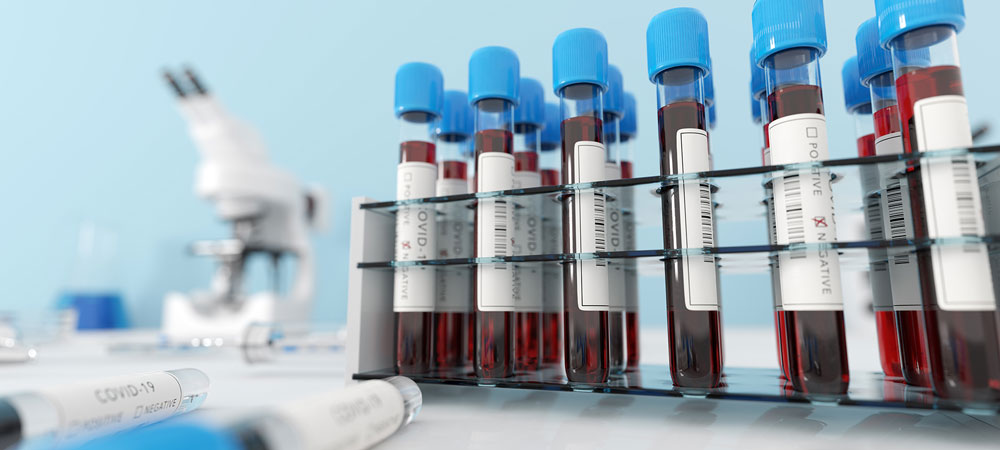 Building Our Future
Building Our Future
Industry and Government have a shared goal of attracting inward investment from the life sciences industry.
This is now thrown into sharper focus as we look to rebuild the economy and the NHS during the pandemic.
EMIG is calling for united action to build on the lessons learned in dealing with the crisis, and to leverage the current opportunities available to embed these. This will reinforce and future proof the UK’s position as a world-leading location for life sciences.

The response to the crisis on behalf of the UK institutions responsible for health care has been unprecedented. Never before have we seen such agility, flexibility and levels of collaboration. Through the pandemic MHRA has played a pivotal role in enabling the ACCORD and RECOVERY trials that have led to all COVID patients enrolled in clinical trials and the research demonstrating the importance of dexamethasone, in time frames that would previously have been unimaginable.
On behalf of EMIG Members, we would like to record our thanks and congratulations to all of those at MHRA, HRA, NICE, NHS England, DHSC and OLS who have exceeded expectations and shown what is possible. If we can maintain these levels of co-operation and flexibility, apply them more broadly in approval of research and innovative technologies, all patients will benefit.
NICE sets the bar globally and is in the process of reviewing its approach (the NICE Methods Review). In these deliberations it can now reflect on its own response to the crisis and the way it has compressed the time taken to issue guidance…how should this experience inform longer term changes meaning that patients in England can be first in line for new treatments?
For patients to be the ultimate winners, changes introduced by NICE will need to be complemented by action on behalf of NHSE-I. Industry is playing its part through its five-year VPAS commitment to fund all annual medicines bill growth above two percent. While the VPAS is in play, the NHS has the opportunity to be an early adopter of innovation without the distraction of cost. NICE methods need no longer differentiate between patients and different types of disease, whether common or rare.
Industry, scientific and medical leaders should engage now to define the practical lessons, the positive attitudes and behaviour changes, that can be drawn from our shared response to the pandemic and embedded in future everyday activity. The crisis has been a unique experience and created an imperative to act together with a sense of urgency in the national interest. Soon we will be at a fork in the road – let’s continue down this new path, define our new normal, and not turn back to how things were.
 Life Sciences Recovery Roadmap
Life Sciences Recovery Roadmap
The COVID-19 crisis has powerfully demonstrated the strategic importance of the life sciences sector to the UK’s health, security, and to the economy.
By creating new partnerships with the Government and NHS, the sector has rapidly scaled up UK diagnostic capacity, supported the NHS to deliver care in a period of exceptional patient demand; and is leading the search for vaccinations and treatments to tackle the pandemic.
We have also seen the future of healthcare in action. The scientific and technological revolution of the Life Sciences sector – from the use of AI and machine learning in R&D to the latest manufacturing technologies and new treatment paradigms – bringing real value to solving health challenges through new therapies and vaccines.
The Life Sciences Recovery Roadmap sets out how the sector can work with the Government and the NHS so that it is at the heart of the economic recovery and can support the NHS in getting cutting edge healthcare to patients.


This paper was submitted to Government by trade bodies that represent the life sciences and charity research sectors through the Life sciences COVID-19 Response Group, co-Chaired by Lord Bethell and Nadhim Zahawi MP.
The Roadmap provides an overview of the critical issues affecting the sector as we look towards recovery and building a new partnership between the Life Sciences sector, Government and NHS.
 A Five-point Plan for Investment in UK Life Sciences
A Five-point Plan for Investment in UK Life Sciences
EMIG’s Five-point Plan is designed to help protect, nurture and grow the life sciences sector by strengthening what we consider to be the foundations of a healthy life sciences sector.

To support a vibrant research community, the Government should create a Life Sciences Sector Research Collaborative, bringing together public funders of research with those who guide global pharma R&D investment decisions. Through this collaborative, we hope to see bodies such as the National Institute for Health Research better target their funds to develop the evidence base for new treatments and technologies, as well as being better equipped to respond to the requirements of those seeking to invest globally in R&D.

To help build a large and highly-skilled manufacturing and medtech sector, the Government should set capital investment allowances and tax credits at competitive levels. This will help attract new manufacturing investment by pharmaceutical companies and contract manufacturing organisations, as well as help create UK hubs for manufacturing ATMPs

To implement learnings from the response to the COVID-19 crisis and help deliver flexible and supportive clinical research and licensing following EU Exit. There are opportunities to link together the MHRA’s Early Access to Medicines Scheme (EAMS) with rapid reimbursement decisions, by aligning real-world data collection under EAMS with the needs of not only the MHRA but also NICE and NHS England.

To encourage global pharmaceutical HQs to locate their commercial centres in the UK, the Government should support the development of a concentration of expertise, including in HTA.

Make use of the flexibilities of the Voluntary Pricing and Access Scheme (VPAS) to remove unnecessary impediments to patient access to new medicines, including by abolishing NICE’s HST thresholds and its budget impact test and implementing an Innovative Medicines Fund.
 Better Research for Better Patient Outcomes
Better Research for Better Patient Outcomes
EMIG believes that improved access to medicines for patients in the UK can be achieved through inputs into UK health technology appraisals (HTA) which reduce uncertainty and improve product value propositions. EMIG has established a collaborative initiative, ‘Better Research for Better Outcomes’ that seeks to create the conditions that facilitate the generation of a package of evidence capable of satisfying both regulatory and HTA bodies.

This will establish a win-win:
- driving inward investment
- addressing some Brexit issues/risks
- optimising NIHR funding and funding from medical research charities
making the UK the standout country for market access
helping the NHS buy outcomes and not costs
supporting patients to live longer and with a better quality of life.
EMIG believes that all stakeholders have an interest and therefore a shared responsibility to work towards better research to achieve better outcomes.
EMIG proposes the following action plan for a sustainable and long-term solution for better patient access to medicines in the UK
- Develop a UK value framework for better research
- Make NICE Scientific Advice a mandatory part of a NICE appraisal
- NIHR funding and the badging of academic (NCRI) clinical studies to incentivise generation of data to support regulatory and HTA submissions, as well as academic end points
- Establish key performance indicators and incentives by creating a specific commissioning pathway for the results of academic studies that shows the contribution to regulatory or HTA approvals
- Support the concept of ‘hybrid’ trials where academic and commercial agendas converge
- Incentivise innovative academic clinical trial designs for the UK to become the world-leader in trial design
- Create agile and flexible treatment algorithms that optimise treatments, drive clinical innovation and create choice for patients within a resource constrained model
- Enable and design flexible approaches to pricing and to patient access schemes
- Shorten the time between regulatory approval, HTA and adoption by the NHS.
 The VPAS
The VPAS
The Voluntary Scheme for Medicines Pricing and Access (VPAS) was agreed between industry and Government for the period 2019 – 2023. One of the principal aspects of VPAS is that it allows for 2% growth in the medicines bill annually, with industry funding all growth above that level via quarterly rebates.
- In addition to the financial mechanism that underpins the agreement, there are a number of Government commitments in the deal. These include:
- Improved engagement between industry and DHSC, NICE and NHSE-I
- The introduction of an NHSE-I Commercial Framework
- A goal that for five highest health gain categories, NHS uptake rates should be in the upper quartile of comparable countries during the first half of the Scheme
- A Review of NICE Methods & Processes.
- EMIG meets regularly with DHSC, NICE and NHSE-I to review progress of the VPAS, including rebate levels and adoption and uptake mechanisms. We are a member of the NICE Review of Methods and Process Working Group and have supported the creation of the NHSE-I Commercial Framework.
- During the negotiations on the current VPAS, EMIG argued for industry rebates to be paid into an Innovative Medicines Fund to underwrite adoption of innovation by the NHS. Although not part of the VPAS, the idea for an Innovative Medicines Fund has since been adopted by Government and is under development.
 Transforming the partnership between industry and the NHS
Transforming the partnership between industry and the NHS
Following on from the successful collaborative working between industry and the NHS through the COVID-19 crisis, we now have an unrivalled opportunity to transform our partnership to support delivery of the Long-Term Plan.
Building on and learning from the COVID-19 response, Government and NHS leadership should develop strategic processes to involve industry and charities in work to support NHS transformation and healthcare provision. This will include identifying ways to retain and action positive changes in adoption of innovation and digital solutions, embedding new ways of working, harnessing the potential of data, promoting self-care and bringing faster diagnosis.
EMIG is keen to work alongside industry, charity partners and the Government’s dedicated team examining how the NHS and health infrastructure can be supported during the recovery process and thereafter. We aspire to longer-term recognition from NHSE-I of the Life Sciences sector as a strategic partner in improving health outcomes, facilitated through high-level collaboration to deliver NHS Long Term Plan objectives.



